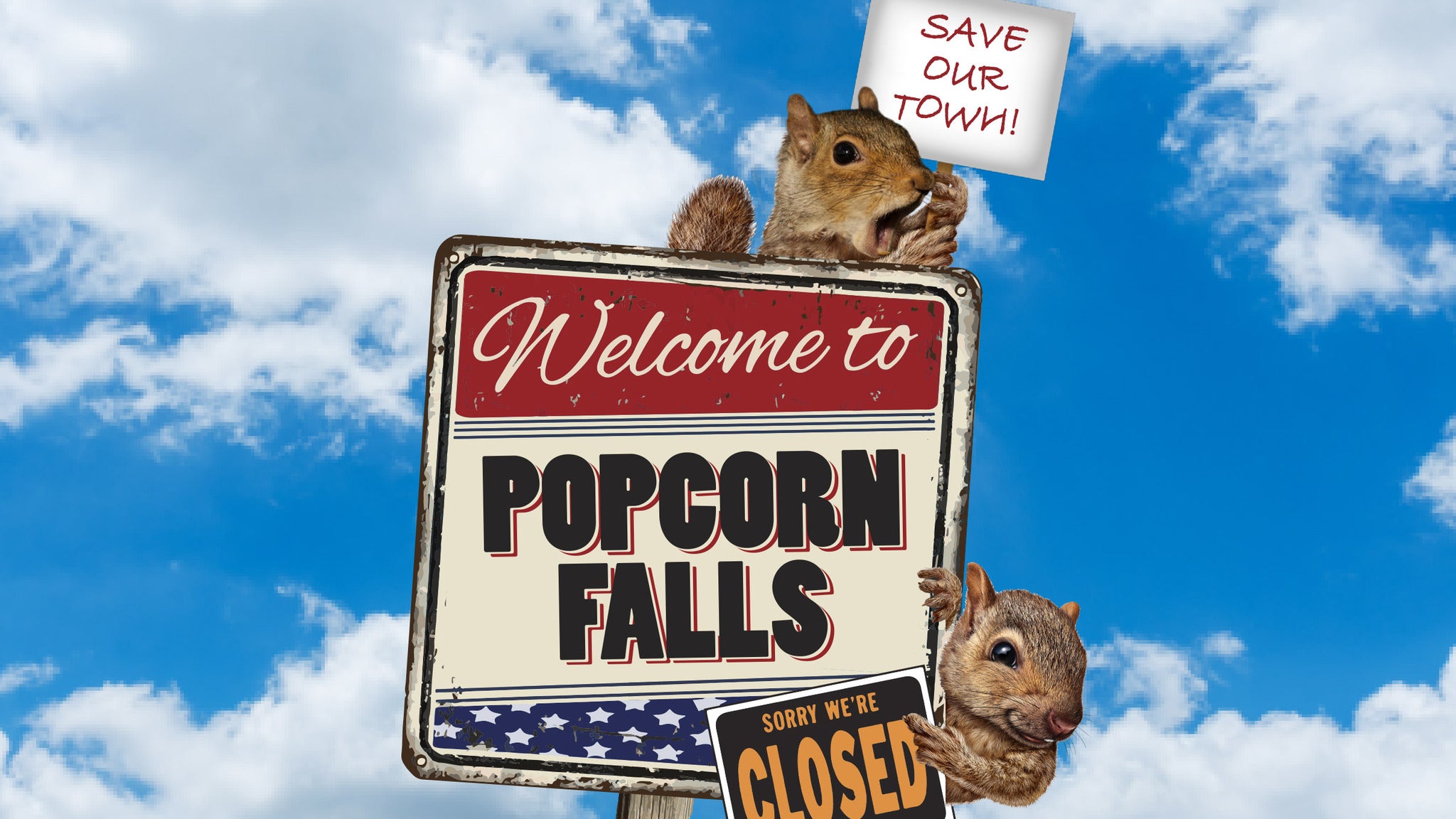
Henrik Eger: What would you like people to know about Popcorn Falls?
Luke Bradt: It’s gonna be fun! Let the show surprise you. I think what I like most about Popcorn Falls is that there is a real heart to it.
Yes, I play a bunch of zany characters, but what might surprise the audience is how there are some moments in the show that are completely straightforward and grounded. My goal is to get you to fall in love with these characters so you cheer their successes and mourn their failings.
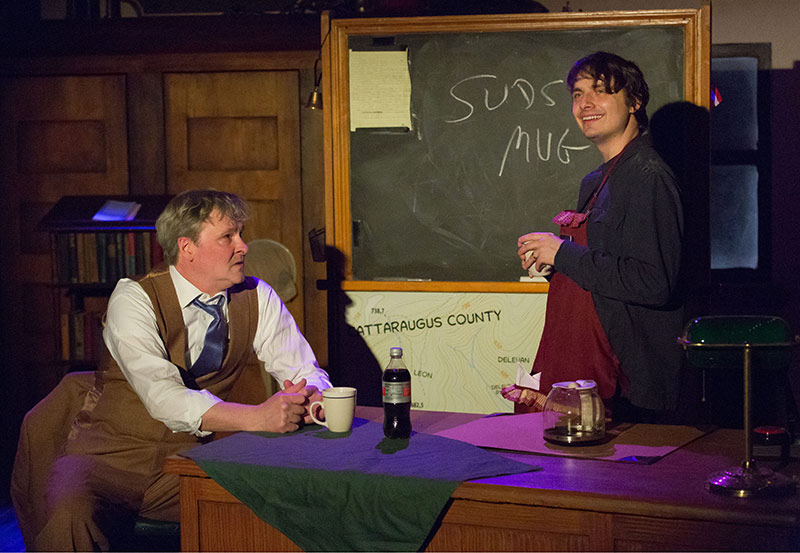
Dan Olmstead: In a world that can seem so dark these days, Popcorn Falls is a charming piece of mostly light entertainment, but almost consistently surprising—a comedic tour-de-force for my partner-in-crime Luke Bradt. He plays by far the lion’s share of characters with a Chaplin-like grace, humor, and pathos. The play often swings back and forth between moments that are almost farcical, and others that are grounded, true and deeply felt—but without a doubt, Popcorn Falls is a comedy in every sense.
Henrik: How did you manage to learn over 20 different roles?
Luke: Practice. Muscle memory. Practice. Practice. Muscle memory. Practice. Practice. Muscle memory. Practice.
Perhaps surprisingly, the actual switching between characters vocally and physically isn’t the challenge. That’s the fun part! I could do that all day! I just get to let my imagination run wild.
The hard part?—all the minutiae that go along with it. Remembering if I put the cigarette holder in the front right pocket the last time I did the character, or if three scenes ago I moved the second cell phone to the front left shirt pocket during the scene change. Did I remember to preset the walkie-talkie in the jacket pocket for the last scene after I stashed it in the onstage bin during a change during the first scene?
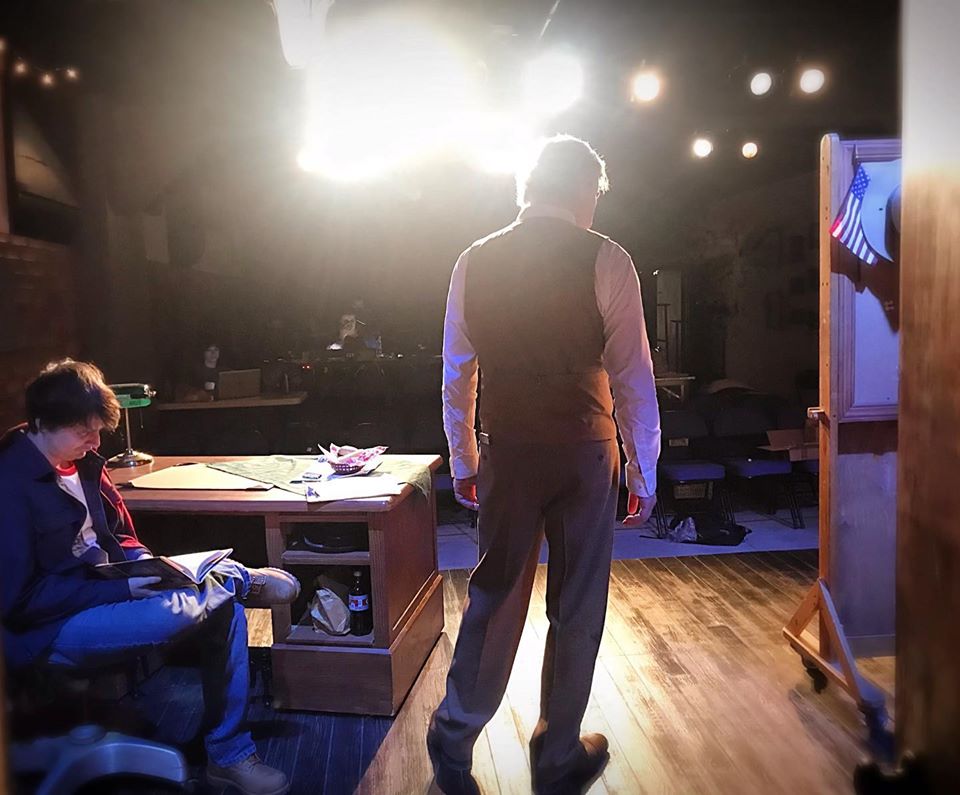
It’s stressful stuff, and you have to trust your work, trust your prep, and trust that you have the chops to adapt if something goes wrong. And things will go wrong!
Dan: I’m not sure I’ve ever truly learned a role. If I’m being any good, at least to my mind and according to my own process—such as it is—I’ll be learning about my character throughout the entire process. If I didn’t approach both acting and directing from that angle, I’m afraid I’d bore not only myself, but very likely others, to tears.
Henrik: Which are your three favorite lines from this play?
Luke: I’ll try not to pick any lines that give anything away! Here we go:
“Hello.” . . . Simple line. But it’s delightful in context. It comes at a certain moment, and it marks the end of a particularly challenging sequence of character and prop shifts.
“Let dead dogs lie, Mr. Trundle. Let dead dogs lie!” . . . I have favorite characters. One of them is Floyd, the one-armed lumberyard owner, and I have a particularly fun time with him. While reading the script, I kept imagining the voice of the obscure character Monkey John from the Western series Lonesome Dove, played by Matthew Cowles. So Floyd is my best impersonation of that character, and I love doing it.
“One week. If there’s no play in exactly seven days, and let’s see . . . it’s 7:59 . . . I’ll even throw in a minute! You have until eight PM one week from tonight to put on your play, or I will see to it that you rot in jail.” . . . This is not an interesting line, but it was hard to memorize, and I am happy when it comes out easily.

Dan: Hmm. “One day we dreamers are going to realize that there are a lot more of us than there are of you.”
“I hit traffic, got stuck behind a parked car.”
“I’m so tired, I just want to sleep.” Actually that last one is probably reflective of the way I’m feeling right now, at the end of week 3.
Henrik: Tell us something about you as a person that only some of your best friends know about you.
Luke: I was stuck on this question, so I asked my fiancée, Nicole, and she says that I’m a terrible liar, so I’ll go with that. [He laughs] I can’t get away with anything!
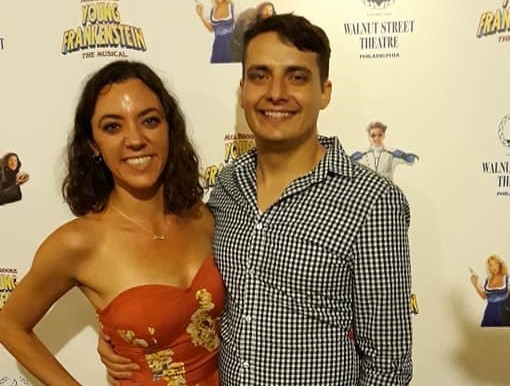
I’m also a huge nerd. I have a whole room devoted to my hobbies. I regularly meet up with some friends to play Dungeons and Dragons. I’ve played it since fifth grade, and it’s always been an outlet for an excess of imagination.
Dan: My director, Ellie Mooney, is also my boss at home. She’s done an extraordinary job with Popcorn Falls, imbuing it with humor and poignancy. She and I met in 2010 during rehearsals for Amadeus at the Walnut Street Theatre. I played Salieri and she played Mozart’s wife Constanza. So Salieri finally wins! [he laughs] I had the extraordinary opportunity to direct her a few years back in The Rise and Fall of Little Voice, here at the Independence Studio. She and the rest of the cast were beyond wonderful; and now with Popcorn Falls, she finally got her chance to get revenge and direct me!
I’m only kidding: of course, she and I have a unique relationship where we collaborate artistically on almost all our projects.
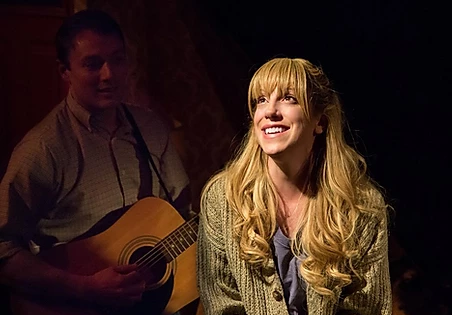
at the Walnut Street Theatre. Photo by Mark Garvin.
Henrik: Tell us something about you as an actor that only some of your closest colleagues know about you.
Luke: I’m petrified of missing an entrance. When I did Brigadoon in high school, I completely blew an entrance. It has haunted me ever since. I usually wait in the wings long before I’m supposed to enter, because I don’t want to space out and fail to hear my cue to get into place—sometimes, as far as two scenes in advance, if I won’t get in the way of anyone else trying to do their job.
Luckily in this show, I enter—and then I don’t exit. So I’m only nervous about that once!
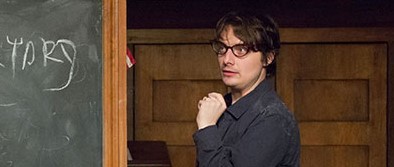
Dan: Wow, there could be so many things. I am a devoted pet lover and I am fairly obsessed with my current puppy, Bisou. She is a magical little Cavapoo [a cross between a Cavalier King Charles Spaniel and a Poodle] who, ironically perhaps, teaches me every day, in some small way, how to be a better human being.
Ellie has kidnapped her to Florida for the moment, so I am missing them both very much; and even though I am loving the theatrical romp that is Popcorn Falls, I’m very much looking forward to the death by a thousand licks that I’ll receive when we are reunited—to be clear, I’ll be receiving those from Bisou, not Ellie.

Henrik: Inspired by those revelations, it’s Confession Time.
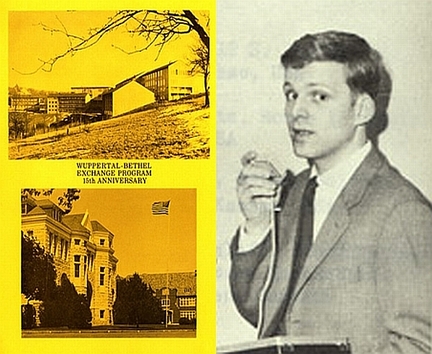
On a scholarship as a German exchange student at Bethel College, Kansas, I was given the lead role in The Sign of Jonah by Günter Rutenborn–putting God on trial in Berlin in 1945. Everything went well during rehearsals, but on opening night, faced by a packed auditorium, something I had never experienced before, I forgot all my lines for the first five minutes and went into a James Joycean stream-of-consciousness mode.
The drama teacher developed gray hair and made me stay up most of the night and rehearse non-stop till the curtain went up again the next evening. Unfortunately, by then, I was so exhausted and nervous that I lost all my lines again. While I learned to improvise in front of a whole hall of theatergoers, none of whom knew the script and quite a few of whom told me afterwards how much they enjoyed my performance—alas, I was never invited to perform in any play anywhere since.
To this day, I don’t know why!
Instead, I write plays in both English and German and became a theater reviewer and interviewer. In short, I have the greatest respect for actors, not only for their acting skills, but for their capacity to learn whole scripts by heart—as witnessed by muscle memory masters Luke Bradt and Dan Olmstead, acting over 20 different roles non-stop at the Walnut.
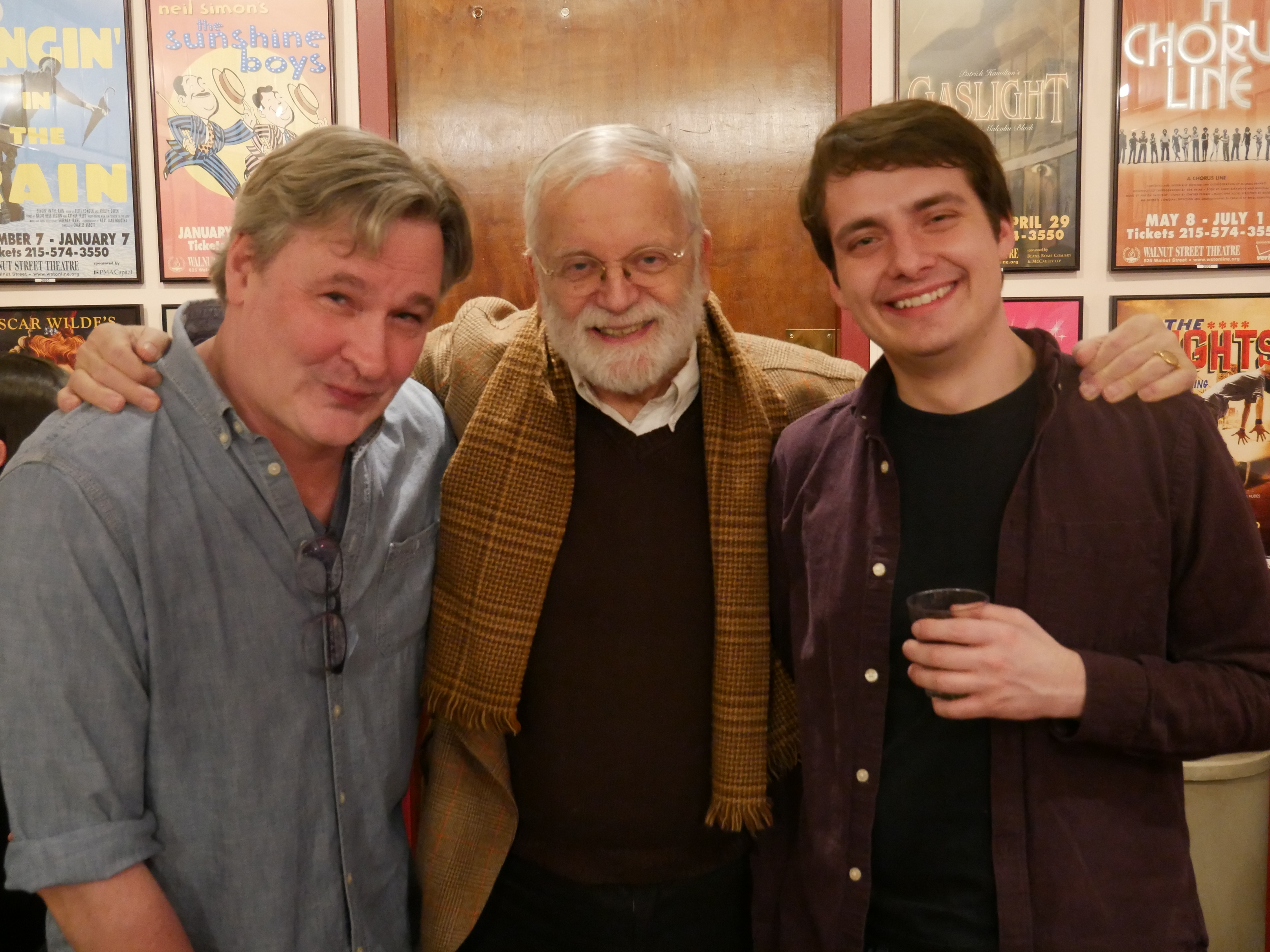
[Walnut Street Theatre, Independence Studio on 3, 825 Walnut St., Philadelphia] February 25 – March 29, 2020; walnutstreettheatre.org

Henrik,
This is a very interesting interview with good questions. And good answers.
Kathryn
Thank you, Kathryn. Coming from you, one of our most experienced theater critics, I feel especially honored.
As I did not want the interview to get too long, especially with my true CONFESSION at the end, I did not share with the readers that I found a way of getting hold of the script! 🙂 The second part of the play takes place in form of a court scene where the judges sit behind music stands holding the scripts, and where they discuss the issue on how best to judge God (the play was written right after WWII in bombed out Berlin by a Protestant pastor).
So, when I realized that my Joycean approach to miraculously remembering my lines during my literary free fall did not work–although I tried my best–I ended each of those excursions into Copyright No-No Land with the phrase: “And if you don’t know what to do, you simply get up.”
At that moment, I no longer let my legs dangle from the stage, talking to the audience as if I were a younger version of Mr. Rogers (“Won’t you be my neighbor?”), but got up, walked slowly to the back of the stage and, opening my script, full of agnostic conviction, said, “When in doubt, all you have to do in life is open the Good Book.”
From that moment the play could proceed, although all the many stage directions went out the window–each night. 🙂
Yup , and that is how I became a famous actor among Mennonites in Kansas in 1965–so famous that nobody remembers. The creative actor who loved acting but couldn’t remember lines eventually studied theater and language and now writes plays and reviews–filled with admiration for all actors who can memorize hundreds of lines and bring scenes to life in often remarkable ways without driving their directors into a frenzy and nightly heart attacks. 🙂